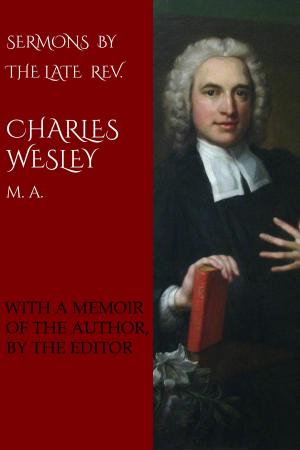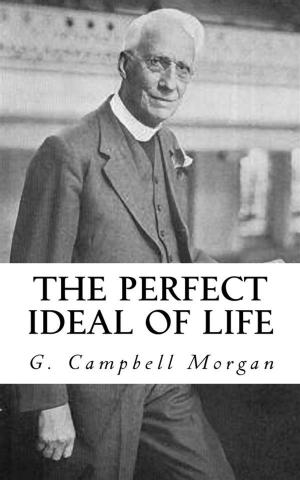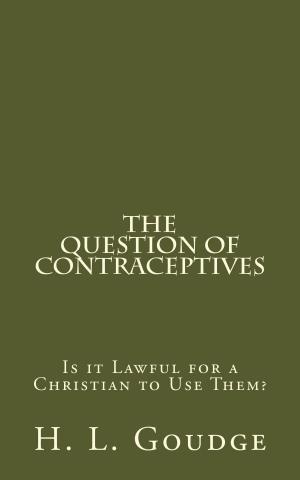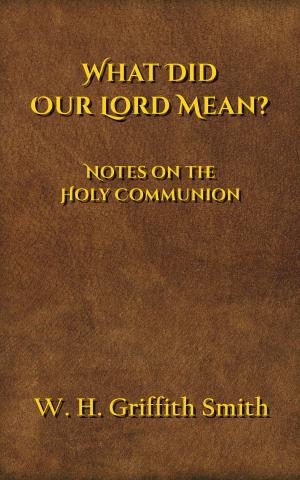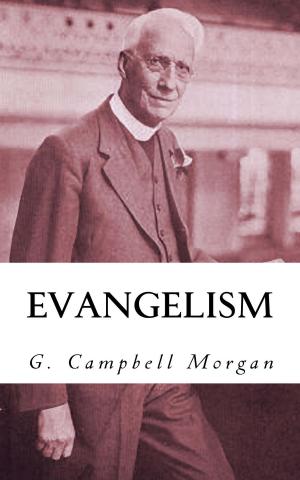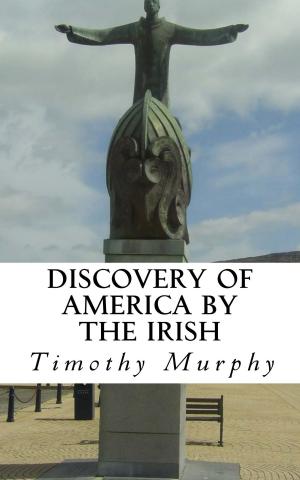Charge That to My Account
And Other Gospel Addresses
Nonfiction, Religion & Spirituality, Christianity, Christian Sermons, Christian Literature| Author: | H. A. Ironside | ISBN: | 1230001935110 |
| Publisher: | CrossReach Publications | Publication: | September 26, 2017 |
| Imprint: | Language: | English |
| Author: | H. A. Ironside |
| ISBN: | 1230001935110 |
| Publisher: | CrossReach Publications |
| Publication: | September 26, 2017 |
| Imprint: | |
| Language: | English |
Someone has said that this Epistle to Philemon is the finest specimen of early private Christian correspondence extant. We should expect this, since it was given by divine inspiration. And yet it all has to do with a thieving runaway slave named Onesimus, who was about to return to his former master.
The history behind the letter, which is deduced from a careful study of the Epistle itself, seems to be this: In the city of Colosse dwelt a wealthy Christian man by the name of Philemon, possibly the head of a large household, and like many in that day, he had a number of slaves or bondsmen. Christianity did not immediately overturn the evil custom of slavery, although eventually it was the means of practically driving it out of the whole civilized world. It began by regulating the relation of master and slave, thus bringing untold blessing to those in bondage.
This man Philemon evidently was converted through the ministry of the apostle Paul. Where they met, we are not told; certainly not in the city of Colosse, because in writing the letter to the Colossians, Paul makes it clear that he had never seen the faces of those who formed the Colossian church. You will recall that he labored at Ephesus for a long period. The fame of his preaching and teaching was spread abroad, and we read that "all... in Asia heard the word." Among those who thus heard the Gospel message may have been this man Philemon of Colosse, and so he was brought to know CHRIST.
Some years had gone by, and this slave, Onesimus, had run away. Evidently before going, he had robbed his master. With his ill-gotten gains he had fled to Rome. How he reached there we do not know, but I have no doubt that upon his arrival he had his fling, and enjoyed to the full that which had belonged to his master. He did not take GOD into account, but nevertheless GOD's eye was upon him when he left his home, and it followed him along the journey from Colosse to Rome. When he reached that great metropolis, he was evidently brought into contact with the very man through whom his master, Philemon, had been converted. Possibly Onesimus was arrested because of some further rascality, and in that way came in contact with Paul in prison, or he may have visited him voluntarily. At any rate GOD, who knows just how to bring the needy sinner and the messenger of the Cross together, saw to it that Onesimus and Paul met face to face.
Someone has said that this Epistle to Philemon is the finest specimen of early private Christian correspondence extant. We should expect this, since it was given by divine inspiration. And yet it all has to do with a thieving runaway slave named Onesimus, who was about to return to his former master.
The history behind the letter, which is deduced from a careful study of the Epistle itself, seems to be this: In the city of Colosse dwelt a wealthy Christian man by the name of Philemon, possibly the head of a large household, and like many in that day, he had a number of slaves or bondsmen. Christianity did not immediately overturn the evil custom of slavery, although eventually it was the means of practically driving it out of the whole civilized world. It began by regulating the relation of master and slave, thus bringing untold blessing to those in bondage.
This man Philemon evidently was converted through the ministry of the apostle Paul. Where they met, we are not told; certainly not in the city of Colosse, because in writing the letter to the Colossians, Paul makes it clear that he had never seen the faces of those who formed the Colossian church. You will recall that he labored at Ephesus for a long period. The fame of his preaching and teaching was spread abroad, and we read that "all... in Asia heard the word." Among those who thus heard the Gospel message may have been this man Philemon of Colosse, and so he was brought to know CHRIST.
Some years had gone by, and this slave, Onesimus, had run away. Evidently before going, he had robbed his master. With his ill-gotten gains he had fled to Rome. How he reached there we do not know, but I have no doubt that upon his arrival he had his fling, and enjoyed to the full that which had belonged to his master. He did not take GOD into account, but nevertheless GOD's eye was upon him when he left his home, and it followed him along the journey from Colosse to Rome. When he reached that great metropolis, he was evidently brought into contact with the very man through whom his master, Philemon, had been converted. Possibly Onesimus was arrested because of some further rascality, and in that way came in contact with Paul in prison, or he may have visited him voluntarily. At any rate GOD, who knows just how to bring the needy sinner and the messenger of the Cross together, saw to it that Onesimus and Paul met face to face.





